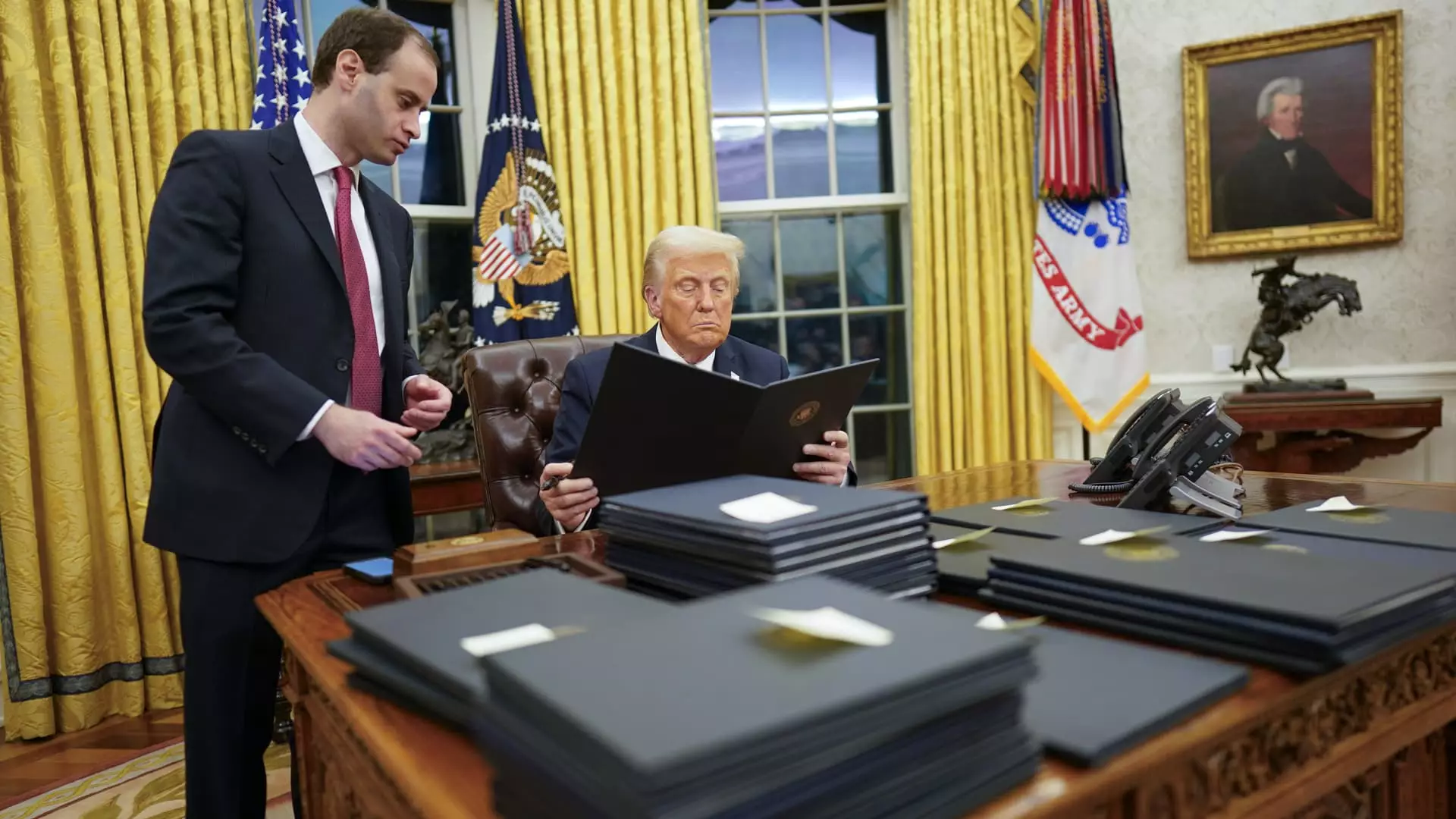The inauguration of President Donald Trump marked a seismic shift in U.S. energy policy, one that can best be described as a vigorous embrace of fossil fuels. Within mere hours of taking the oath of office, Trump executed a series of ambitious executive orders aimed at revitalizing domestic oil and gas production while simultaneously sidelining environmental commitments and climate initiatives championed by the previous administration. This radical restructuring raises critical questions not only about the future of the energy industry but also about the implications for climate change and national security.
Trump’s administration swiftly framed energy production as a national emergency, suggesting that the U.S. faces a damaging reliance on an inconsistent energy grid. In his view, electricity demands, driven by technological advancements like artificial intelligence and a surge in domestic manufacturing, necessitate a robust and aggressive approach to energy production. Within these claims, the president identified potential vulnerabilities and ordered federal agencies to explore emergency measures to enhance the quickening pace of energy extraction and infrastructure development.
Critics might question the need for such drastic actions when the U.S. is already a dominant player in the global fossil fuel market. Major oil companies, including the leaders of Exxon and Chevron, indicated that their production levels rely heavily on market dynamics rather than political aspirations. Thus, while Trump puts forth an aggressive front of “drill, baby, drill,” the tangible effects on production may be limited.
One of the most consequential actions was Trump’s directive to withdraw from the Paris Climate Agreement, a move that signaled a clear break from international commitments to limit global temperature increases. This decision, characterized as a matter of national sovereignty and economic revitalization, also raises the specter of long-term repercussions on global climate action efforts. Many environmental advocates express concern that this retreat not only undermines global collaboration but further emboldens fossil fuel interests at the expense of cleaner energy initiatives.
The rationale for this withdrawal aligns with Trump’s broader agenda to promote increased domestic energy production, reflected in his decisions to dismantle ambitious targets laid out by the Biden administration, which aimed for significant advancements in electric vehicle sales and a decarbonized electric grid. By reversing these initiatives, Trump is effectively signaling a disinterest in pursuing renewable technologies, a stance that might stall advancements in sustainability and electric vehicle integration.
Another notable aspect of Trump’s energy policy is his focus on expediting conventional energy projects. This includes the revocation of Biden’s offshore drilling bans and an emphasis on liquefied natural gas (LNG) initiatives in states like Alaska. However, these moves are not devoid of pitfalls. Legal ambiguity surrounds Trump’s attempts to rollback certain protections previously established under Obama, as highlighted by a federal court’s previous decision that struck down similar actions during Trump’s first term.
Moreover, while Trump has ordered agencies to act fast on energy projects, the complexities of regulatory processes mean that delays are likely. The dependence on legal foundations for such infrastructure initiatives could create additional hurdles and prolong timelines for project completion. The interplay between Trump’s aggressive approach and institutional checks could lead to an uncertain outcome for proposed energy developments.
Initial Backlash and Future Implications
In the initial phases of Trump’s energy gambit, regulatory bodies and environmental activists have already begun mobilizing against his sweeping changes. Legal challenges are projected to emerge, contesting his authority to unilaterally dismantle established energy policies. As the administration shifts focus towards fossil fuels, the potential for backlash from both environmental groups and segments of the public concerned about climate change cannot be underestimated.
In the long run, Trump’s actions may have far-reaching implications for the energy landscape in the U.S. The revocation of initiatives that once aimed for sustainability could hinder technological development in renewable energy sectors and lock the country into a predilection for fossil fuels that may destabilize future energy independence.
President Trump’s initial forays into energy policy signal a foundational commitment to fossil fuel dominance. Despite the resistance and potential legal challenges ahead, the energy doctrine instilled by his administration appears poised to solidify the U.S. position as a global fossil fuel leader. Nevertheless, the pursuit of a fossil fuel-centric approach amidst escalating climate concerns raises questions about both the sustainability of this strategy and its implications for the future of environmental stewardship in America.


Leave a Reply